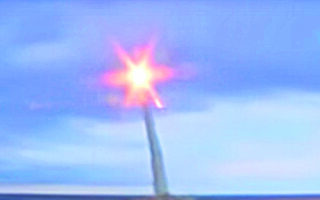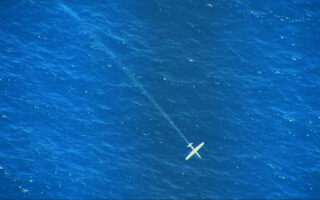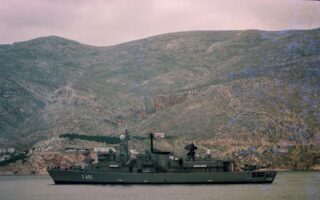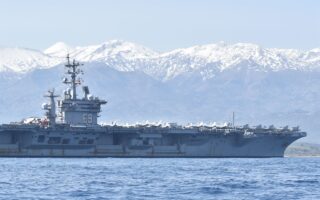‘If Greece were a stock, its value would be rising’
American pressure on Turkey to stop Aegean aggression will continue, retired US admiral tells Kathimerini
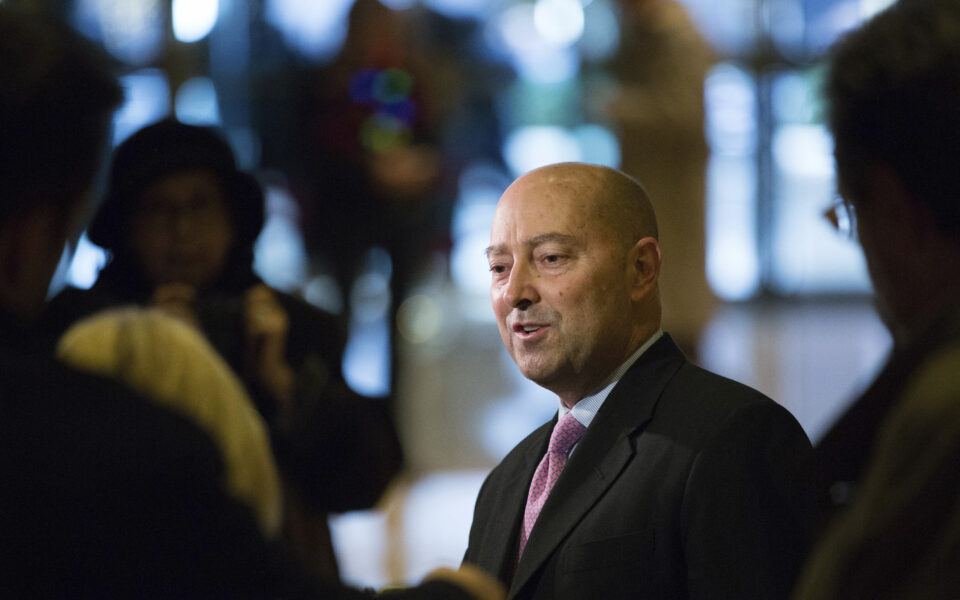
If Greece were a stock, its value would be rising, says NATO’s former Supreme Allied Commander (2009-2013), Admiral James Stavridis. In an interview with Kathimerini he emphasizes not only the significance of Greece’s geographical position but also the role of the Greek-American community. He notes that it would serve the geostrategic interests of the United States if the American anti-missile warships, currently stationed in Spain, were to be based in Greek ports.
Stavridis predicts that following his re-election, Turkish President Recep Tayyip Erdogan might adopt a more collaborative approach. In this regard, there could be an opportunity if the Turkish president, emboldened by heightened self-assurance and without the necessity to exert significant influence on public opinion, chooses to moderate some of his positions.
However, he emphasizes that the United States will maintain pressure on Turkey to halt its aggressive actions in the Aegean. He highlights that Ankara’s position toward Athens is taken into account as part of Washington’s comprehensive assessment concerning the provision of new F-16s to Turkey and the modernization of its current fleet.
Stavridis, who served as the dean of the Fletcher School of Law and Diplomacy (2013-2018) and currently holds the position of vice chairman for global affairs at the Carlyle Group, also discusses the war in Ukraine. He emphasizes that the probability of reaching a resolution is rising as Western patience may start to diminish due to the mounting cost, both in terms of resources and equipment.
How is Greece’s strategic value assessed in Washington – White House, State Department, Department of Defense, Congress – and by both parties?
If Greece were a stock, its value would be rising. As complexities increase in the Eastern Mediterranean, the value of Greece as a partner increases – because of its unique geography, long-term value as an ally, and cultural connection with the strong Greek-American community.
Souda, Alexandroupoli, other bases – are we witnessing the unfolding of a long-term upgrade in Greece’s security role in the volatile region of the East Med and the Balkans?
Yes, with emphasis on the Aegean as a Greek/NATO sea in close proximity to the Black Sea and with valuable real estate frontage on the Mediterranean. Over time, I would love to see US Aegis destroyers stationed in Greece instead of Spain, which is so far to the west. The US Navy had ships stationed in Piraeus in the 1970s, and it was a very popular homeport for the sailors and a valuable “forward presence” in the Cold War from an admiral’s perspective.
What does Erdogan’s re-election mean for Turkey’s relations with the US and Europe?
It means “peak Erdogan.” Whether that translates into a more moderate policy toward the Alliance and Ukraine (since he doesn’t have to appeal to his electoral base) is hard to assess, but overall I think we will find him to be a more cooperative partner going forward. Time will tell.
Given its economic shortcomings, will Ankara have to go to the IMF or will he be able to rely on Arab investments?
Economics will drive much of Erdogan’s positioning going forward, so look for him to seek assistance wherever he can find it economically.
Geopolitically, will he move Turkey closer to Russia or even China?
No one knows, but I’d say he will continue to try to steer a middle course. A good indicator will be whether he admits Sweden into NATO – if he does not, voices will emerge saying that losing Turkey might be a good trade for Sweden. I doubt he will go that far, and thus I’d bet he admits Sweden in the next few months.
Will Turkey receive the new F-16s it is seeking and upgrade its existing ones? Other than blocking Sweden’s membership to NATO and purchasing Russian S-400s, is aggressive behavior toward Greece an obstacle too?
The US will continue to press Turkey to stop aggressive actions in the Aegean which are directed against Greek sovereignty. That will be part of the calculus on the F-16s. Don’t forget, Turkey has already been dropped from the F-35 program, and F-16 upgrades are at best a consolation. Both sides will continue to negotiate, and Greek concerns will definitely be part of the calculation, as they should be.
Any chance Erdogan will become more cooperative in the East Med?
Too soon to tell, but he is appearing more conciliatory toward Israel in particular, which could be beneficial to Greece.
Given the “Blue Homeland” doctrine, is there any possibility of real progress on the Greek-Turkish relations front, with aggressive rhetoric and actions receding?
It is a possibility, as a self-confident Erdogan, who does not need to play so strongly to his base, moderates some positions. Let’s hope so. I’d say the best policy for Greece is simply to watch Turkish actions over the next few months.
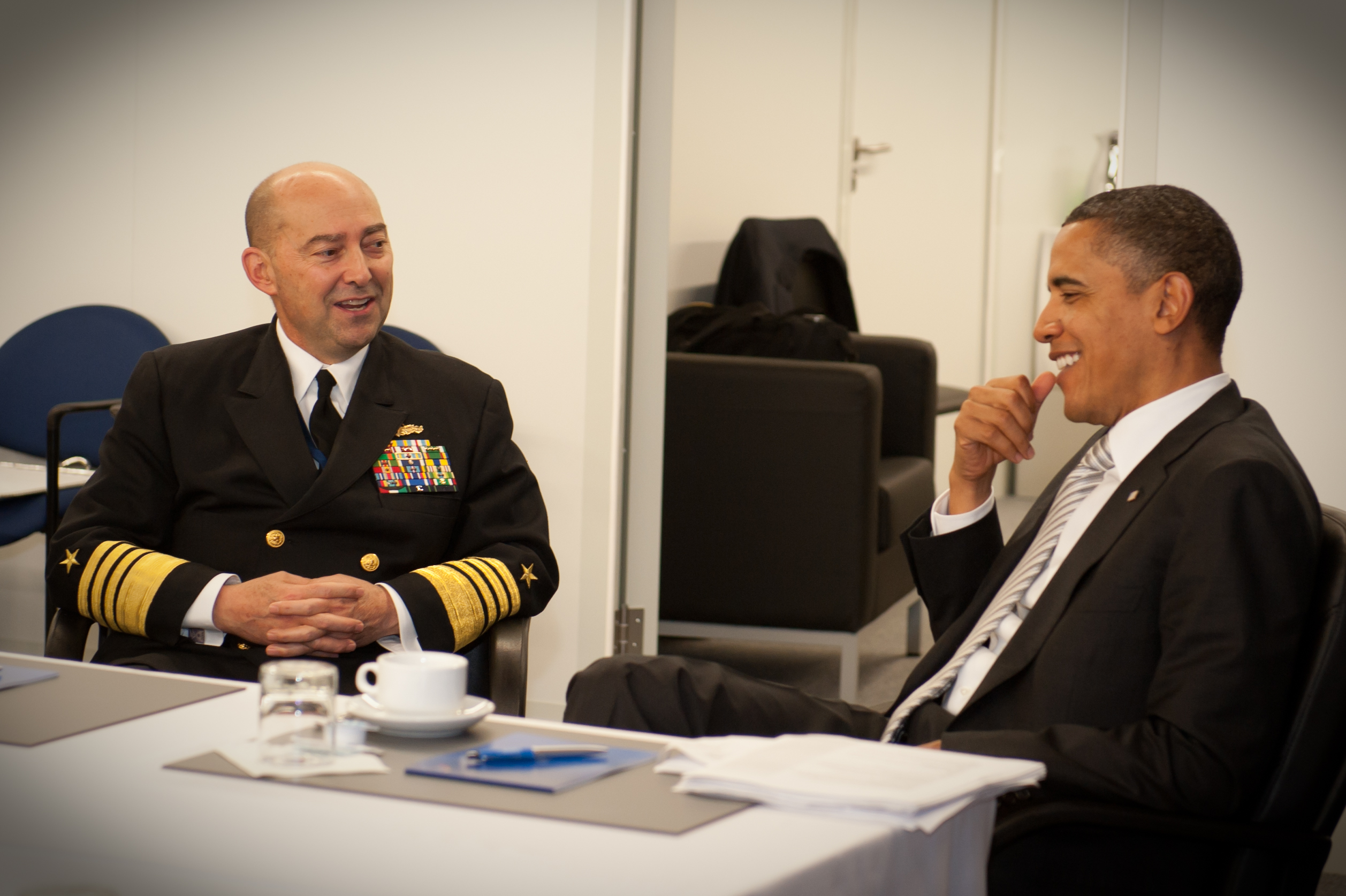
The Ukraine crisis
Where are we in the Ukraine war? Do you see any possibility for peace?
Over the next year, the pressure on both Russia and Ukraine to find a settlement will increase. For Putin, the “burn rate” is very high – he is losing hundreds of thousands of young Russians (both in battle death and wounds and on those departing Russia to avoid the draft) and about half of his ground combat power (tanks and armored personnel carriers). On the Ukrainian side, the patience of the West might begin to soften given the expense in both funds and equipment. Given both of those pressures, a negotiated settlement late this year is possible.
Any faults in the Western strategy? Has Russia been pushed closer to China?
Russia was always going to be aligned with China. In America, we say “ducks like ducks,” and in this context authoritarian regimes like other authoritarian regimes. We didn’t push Russia away – that is magical thinking. Putin chose to invade Ukraine not once but twice (2014 and 2022) and it was a deliberate choice by him. The idea that NATO was threatening him in any way is total nonsense – as a former supreme allied commander of NATO, I’ve seen every war plan, and there are no offensive options toward Russia: only defensive plans. And given Putin’s ego and actions, I’m glad we are prepared as an alliance to thwart his ambitions.


